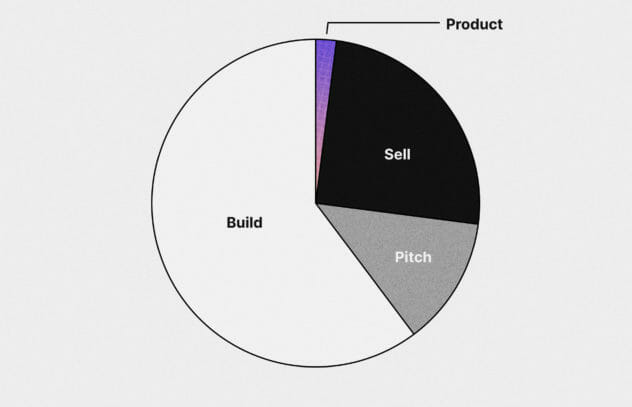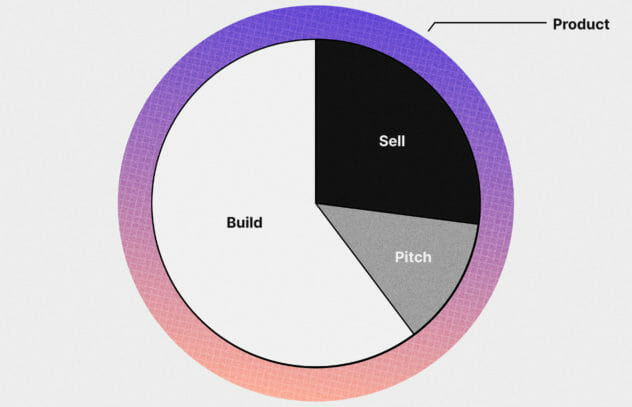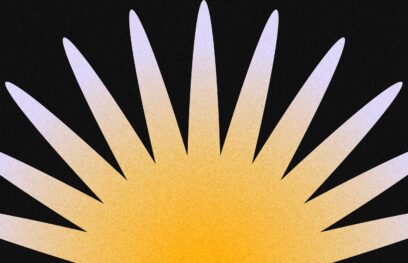
Buyer , User , Startups — 11.18.2022
Why Early Stage Startup Founders Need Product Mentors and How to Find Them
Chelsea Douglass, Director of Marketing

Pre-seed and seed stage SaaS founders have a lot of priorities. In fact, founders are responsible for solving about every business need as there are few hands to delegate to, if any at all. It takes ruthless prioritization — Eisenhower matrixes, Kanbans, “eat the frogs” — all to make sure the right decision is made at the right time.
For many early stage founders, this is exhilarating, exhausting, and an emotional rollercoaster. But most of all, it’s lonely. When every decision is yours to make, you can get stuck questioning yourself, looking for a partner to bounce ideas off of. Even the most confident founders can become susceptible to getting stuck in their head.
Rarely is a founder an expert in the product, business, and growth strategies, and subsequently the tactics within those strategies. Don’t confuse this with letting go of the wheel. Founders need a firm grip on these primary strategies. But they likely are a specialist in one and a generalist in many.
Great product mentors can fill the void of a co-founder or discipline expert for early stage founders. The best relationships complement a founder’s expertise with the product mentor’s expertise.
Matching early stage founder expertise with the right product mentorship
If a founder is a subject matter expert (SME), it’s likely they’ll spend most of their time on the product. They know their customers and what solves their pains.
If a founder is a former CEO or in a business leadership role, it’s likely they’ll focus on the frameworks that make the business run – profit and loss margins, talent and hiring strategies, and investor relations.
If a founder is a former marketing, sales or revenue (growth) leader, it’s likely they’ll focus on their customers, prioritizing brand strategy, positioning and messaging.
There is no right or wrong background for a founder to have, so long as they recognize where they’re skilled and where gaps become blindspots.
Mentorship can come in many forms. Individual pairings may occur organically. Mentors may contact a founder directly, either out of admiration of your product, or similar expertise. Or mentors may be paired with founders through an accelerator program or direct investment (where typically a more formal ‘advisor’ is used).
Just as you think about what kind of investment firm you want to solicit a check from, the same advice applies to thinking about which mentor is right for you.
Founders evaluating which accelerator to join or investor to accept a check from should consider this pairing. If the accelerator’s listing of mentors includes mostly marketers and growth leaders, one can assume the accelerator will lean toward providing marketing and growth advice.
If your background is in growth strategy, you may consider an accelerator that will push you in an area you know less about, like product strategy.
If the investors all made their success in B2B marketing tech products, then you already know which way they lean. Sometimes these indicators can be helpful, and other times you may need to find more opinions in areas you’re not as familiar with.
Additionally, the stage you’re in can determine what mentorship is available to you. Once you reach Series B funding you aren’t thinking about product-market fit anymore. But that doesn’t mean you should stop receiving and requesting product advice. It means the type of advice changes into conversations around product hierarchy, product brand and maybe your merger and acquisition strategy.
Product experts make great early stage startup mentors
No matter what a founder’s background, product should be extremely top of mind, guiding almost every decision all in an effort to reach product-market fit.
No matter how many digital products are on the market today, product is still a misunderstood discipline. It’s so misunderstood, we wrote an article about what it means to get product because it’s a phrase we say often at Innovatemap.
At Innovatemap, when we meet with founders, we often see this:

When the reality is that it should be this:

The second image shows what it means to have a product mindset in all aspects of your business. It doesn’t mean a founder stops selling, building their team or pitching to investors. It means the product should be guiding those activities and the decisions made within them.
Here are a few examples for B2B SaaS product founders:
- You ask your investor for advice on why visitors land on your website but aren’t filling out forms. An investor may offer some traditional marketing advice such as A/B testing messaging. And while that’s not a wrong response, a product expert would take a different approach. A product expert would evaluate whether your messaging leads with features over stories, or whether you’re telling people the benefit or showing them the benefit of the benefit.
- You ask your customer success lead to figure out why new users sign up but aren’t engaging in the product or aren’t renewing membership. A customer success lead may identify the problem, such as a lack of useable and valuable features, but the customer success lead isn’t the person to fix those problems, or make a decision whether they deserve to be in the product or not. A product expert can identify the problem and offer a sound solution with confidence.
That confidence that comes from great product mentors can make or break your product’s trajectory. We know speed is critical in early stage companies, and confidence is the fuel to speed.
Different types of product experts provide different product advice
Throughout this article I’ve referenced product as if it has a capital P, but I’m actually talking about four types of expertise: product management, product design, product marketing, and product brand.
If you stopped reading and said to yourself “wait, I don’t have time for four mentors,” don’t worry. That’s not my suggestion.
Sometimes, one person can provide mentorship in all of those areas. That person has likely been a Chief Product Officer for a few product-led companies. They’ve led these four product teams or have been responsible for their output.
What’s more likely is that you’ll have a product expert who focuses on resonating with the user, and a product expert who focuses on resonating with the buyer.
To resonate with the user through your product:
- Product management and user research informs the right experience and translates that into a buildable plan
- Product design makes that experience intuitive, easy-to-use and beautiful
Product managers and product designers make great mentors for helping your product resonate with its users. They know how to prioritize features and functionalities. They know why beautiful design is table stakes.
To resonate with the buyer through your product:
- Product marketing communicates the value provided to the buyer and users through positioning, messaging, packaging and more
- Product brand supports the story with a visual identity and language, all activated in marketing and sales enablement materials
Product marketers and product brand designers make great product mentors because they can help you attract more buyers through your website and help you scale out of founder selling by enabling your sales teams. They know how to evaluate existing positioning and messaging and can suggest changes to consider. They can tell when it’s time to step up your brand strategy.
While a product manager can point out pains in your product marketing, a product marketer will help you identify what to do next. And vice versa for a product marketer who can spot a product design problem, but would look to a product manager to explain how to fix it.
At the pre-seed and seed stage, founders should prioritize product mentorship in the area they are least knowledgeable in. A former marketing leader who is now the founder of a new product should consider prioritizing a product mentor to help them resonate with their user first, because that’s likely a much bigger skills gap to fill.
Find the right product expert for your early stage B2B SaaS company
If you’re not getting the right product expertise through an existing accelerator program or your investor, don’t fret. You’re getting value that you’ll have to apply to your product or business yourself.
Finding the right product mentor can be challenging.
If you take an individual outreach approach, consider these steps:
- Make a list of market-leading products you admire and why. They are market leading for a reason. And it took a team of people to get there.
- Divide your list of “likes” between resonating with the user and the buyer.
- If the likes are weighted on the user side, go to the company’s page on LinkedIn and find the lead product manager or product designer. If on the buyer side, look for the product manager or brand designer in charge. Craft a note asking for 30 mins of their time to ask a few questions.
- Like the convo? Strike up a longer-term mentor relationship.
Take the time to invest in finding the right mentor. The worst thing you could do is pick an inexperienced product mentor who gives bad advice.
Accelerators can act as a shortcut because they’re an ecosystem magnet for mentors and investors. Digital product agencies can also act as a shortcut because they are chock full of product experts who have dozens if not hundreds of at bats working directly with pre-seed and seed stage founders to build marketable, valuable and useable products.
Digital product agencies (like Innovatemap) are still emerging as a category. But because we know product mentorship is so important, we offer it at no cost to founders in need of advice. Fill out this form and let us know how we can match the right expertise with your product needs.

